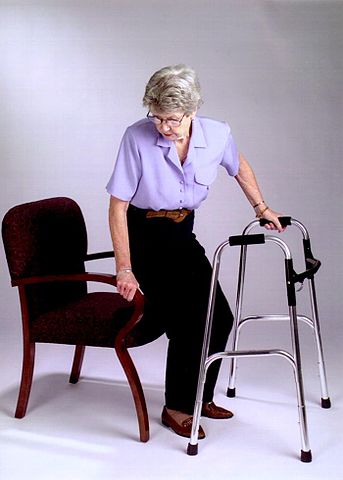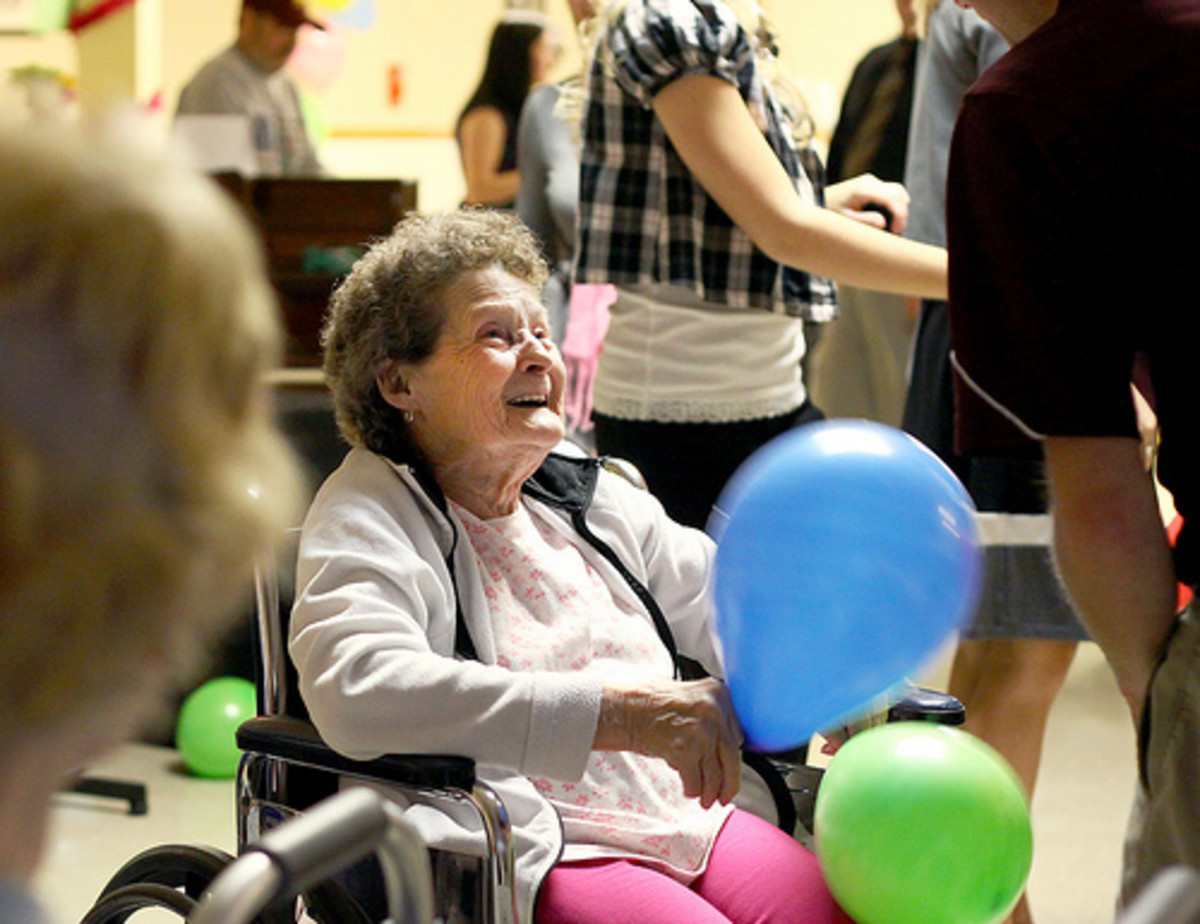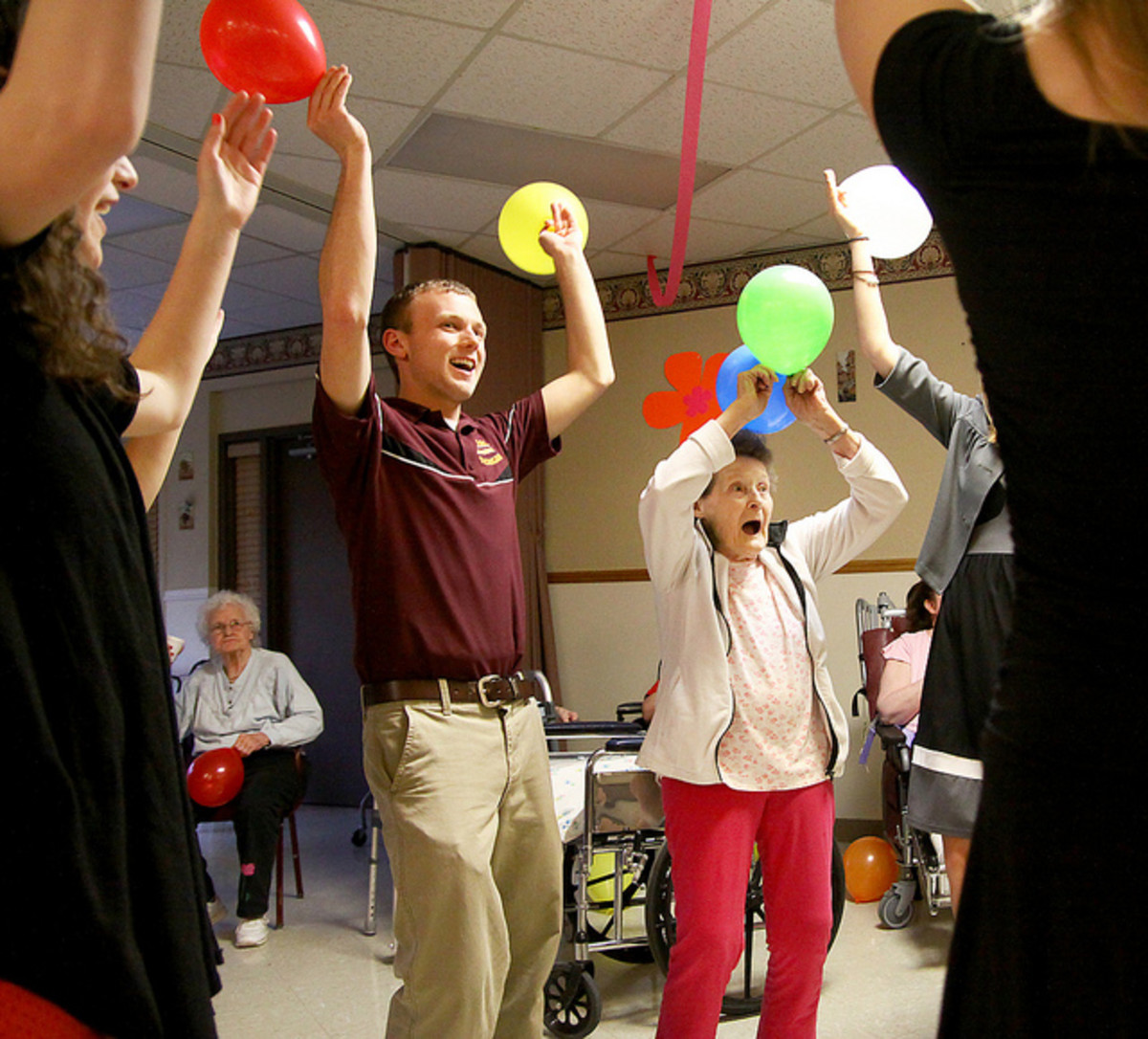Nursing Home Rehab: A Basic Guide
Changing Our View
Nursing homes have long had a negative association. I remember my grandmother always spoke of the thought of having to go live in a nursing home in a distasteful manner. I think most people have viewed them as a "place to go and die". However, in my years of working in many nursing homes as a speech therapist, I have a different view. Nursing homes can be a place for people who need extra help to return to a prior level of function or even to return home.

Rehabilitation
According to Merriam-Webster, definitions of "rehabilitate" include to "restore to a former capacity" and "to restore or bring to a condition of health". These are the definitions that apply to the work of a rehabilitation team in a skilled nursing facility (nursing home) which usually includes a physical therapist, physical therapist assistant, occupational therapist, occupational therapy assistant, and speech-language pathologist (aka speech therapist) also known as PT, PTA, OT, OTA and ST. These therapy disciplines are available in the nursing home setting to provide therapy and rehabilitation for residents. I have worked on and off in the nursing home setting as a speech-language pathologist for over 15 years, and my husband is an occupational therapist who also practices in a nursing home. This hub will focus on the roles of the PT, OT and ST disciplines in the nursing home setting. Evidenced by the questions we often get from friends, many people do not realize the rehabilitation option and benefits of a nursing home.
Were you aware that nursing homes provide therapy and rehabilitation services?
What You May Not Know
Upon talking to my friends and acquaintances, I have found that most do not realize that people can come to a nursing home after a hospital stay just for therapy and then many are able to return home. If a patient has Medicare Part A insurance they are eligible for 100 days of therapy covered by Medicare after a qualifying 3 day hospital stay. The first 20 days are 100% covered and the next 80 are 80% covered. The remaining 20% may be covered by a secondary insurance.
Nursing homes are no longer just "old folks homes". They are thriving geriatric communities. Therapists are there to help return a patient to their prior level of function. They want them to return home if at all possible. If a patient does need to remain in the nursing home for care, the therapist works to have the patient at their highest level of function and independence possible.
The nursing home is a great option for an extended stay of rehabilitation. A patient may enjoy the homey and more relaxed feel that the nursing home environment offers. There is also a lot of flexibility in the patient's day and the time therapy is preferred. A patient may also enjoy the social atmosphere and activities available at a skilled nursing facility.
What types of therapy are you or your family familiar with?
Physical Therapy
The physical therapist and physical therapist assistant generally work with a patient to improve walking, moving around in the bed, transfers, balance, etc. The physical therapist will evaluate the patient's deficits. The PT or PTA will work on improving strength in the patient's legs and lower body in order to improve patient's standing, walking and transfers.
Occupational Therapy
The Occupational Therapist, in general, works to have patient be able to perform activities of daily living (ADLs). These activities include but are not limited to bathing, dressing, feeding yourself. The occupational therapist will evaluate the patient's current level of function. The OT and OTA then work with patients on fine motor skills and upper body strength in order to improve a patient's function to complete their ADLs.
Speech Therapy
The Speech Therapist or Speech-Langague Pathologist may work with your loved one in the area of cognition, speech, or swallowing. The ST's goal is to have the patient communicate wants and need effectively and efficiently. When speech is slurred or muscles of the mouth and face are weak, a ST will help the patient strengthen those muscles to improve speech clarity.
If the patient is having trouble swallowing, they are at risk for aspiration (having food escape into their lungs which could result in pneumonia). The ST will work on exercises to improve the swallow function or make diet changes necessary for the patient to swallow safely.
The ST may work to help the patient recover language function after a stroke. Often, a stroke on the left side of the brain results in aphasia (loss of language). The ST will work with the patient on tasks to improve language comprehension and expression.
A Day in the Nursing Home for the Rehab Patient
The patient in the nursing home will receive 3 meals a day either in their room or in the dining room. Typically, they will go to therapy in the morning after breakfast or sometimes in the afternoon after lunch. Some patients may have therapy divided into multiple session times. As a general rule, they patient will receive 30-60 minutes of therapy for each discipline that is indicated by their specific deficits. Often the patient will come down to a "therapy room" for their rehab but if indicated it will be provided in their room when that setting is more appropriate. The patient will have the option to go to nursing home activities during the day as well. They will have access to around the clock nursing care and assistance.








